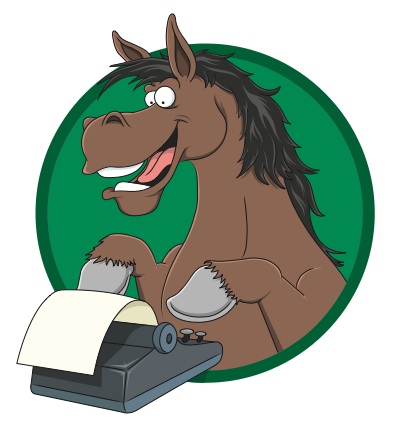With spring definitely beginning to establish its influence on the landscape it is getting near the time of year when my recently purchased New Forest ponies will be going back out on the Open Forest to roam free. My two mares have stayed on back-up grazing land over the winter and have had regular rations of meadow hay to supplement their diet. The short winter days and bad weather make trips to the Forest to check on stock far more difficult. So this arrangement, whilst more labour intensive, is the best practical solution. The back-up land on my holding is essential to being a practicing commoner. There are times when it may be necessary for me to remove my animals from the Forest and having additional grazing land to keep the ponies is vitally important.
Levancy and couchancy
The custom of ‘levancy’ and ‘couchancy’, which literally means that the animals can ‘get up’ and ‘lie down’ on the land, traditionally indicated the number of animals the back-up land was able to support and thus how many were able to go out on the Open Forest. During much of the past commoner’s animals were not turned out during the period known as ‘winter heyning’. This meant that commoners could only keep as many animals as they could maintain on their holding during the winter with the feed or hay grown on the holding during the summer (when the animals were out on the Forest). This was a traditional commoning practice and today’s commoners seem to use the same common sense approach when deciding how many animals they want to keep. By modern standards, for example, grazing land for horses/ponies is calculated at two acres for the first horse or pony and one acre for every additional horse or pony thereafter. (It has to be remembered, however, that these calculations are based on horses or ponies staying on the same pasture all year round.) If I wanted to keep more ponies than I believe my current holding can maintain I would have to search for more back-up land. Unfortunately, as many other commoners will tell you, that is easier said than done.
Born free
Before being turned out onto the Open Forest I need to start handling my ponies, to get them used to me. The Agisters, who are employed by the Verderers of the New Forest to assist in the management of Commoners’ stock, prefer the ponies to be halter-broken. It is much easier to catch up a pony if it is accustomed to being haltered and led about. But the trick is to get them familiar to being handled by me without completely taming them. These are ponies that are intended to be free-roaming and living a semi-feral life. I want to be able to approach them and catch them, if necessary, but I don’t really want anyone else to do the same. I don’t want my ponies getting too tame and coming into conflict with visitors to the Forest or accepting food from them.
Kindness can kill
One of the significant contributory factors to the high number of road deaths of ponies on the New Forest are the visitors who feed them in the car parks, or who throw food from their car windows when travelling along the roads. This brings the ponies into close proximity with cars and other vehicular traffic. The ponies do not learn to fear road traffic; unfortunately they learn quite the opposite. These well meaning people do not realise that their kindness can kill and that they are encouraging the ponies onto the roads, into traffic and harms way. Many people justify their actions by claiming that the animal looked hungry, underfed or thin. The commoners check their stock regularly and the Agisters monitor the welfare of the animals closely. However it is difficult to reassure people that the physique of a New Forest pony is natural when they are used to seeing glossy or overweight riding ponies.
Learning curve
For me this is all part of the learning curve that I am on. I am fortunate to be supported by a network of other commoners who are ‘old hands’, and can be relied upon to give sage advice and practical assistance. The New Forest Agisters are experts at dealing with ‘wild’ ponies and ensure that the best possible welfare standards for the commoners’ animals are maintained. This system of cooperation and support is enabling me to gain in confidence as well as knowledge.
NB: If you find a sick, injured or dead pony, cow, donkey, pig or sheep (other than one involved in a RTA), call the Verderers’ Office: 02380 282052 during normal office hours, or 02380 283141 at other times.
For sick or injured deer, ring the Forestry Commission on 02380 283141.




You must be logged in to post a comment.